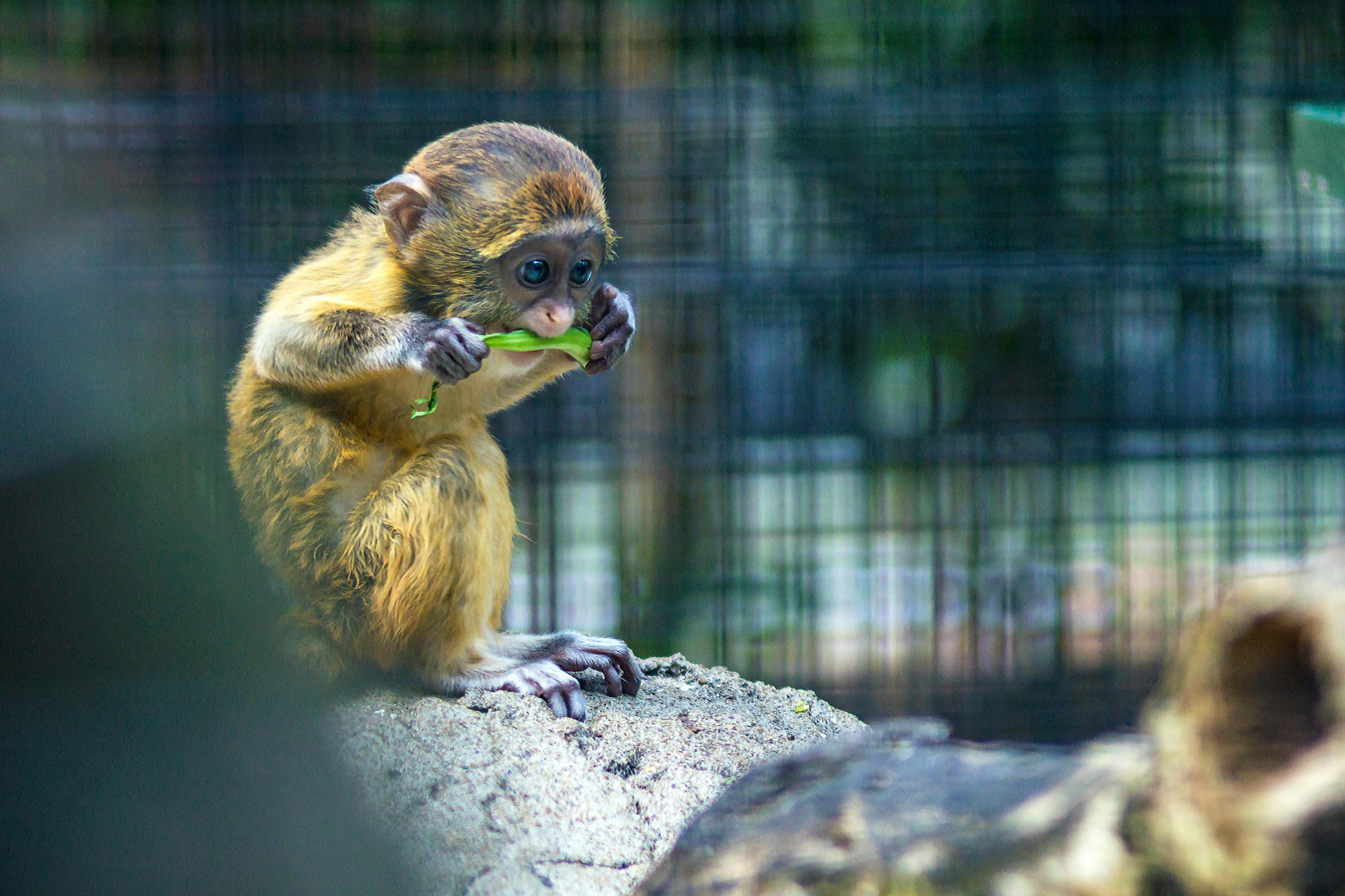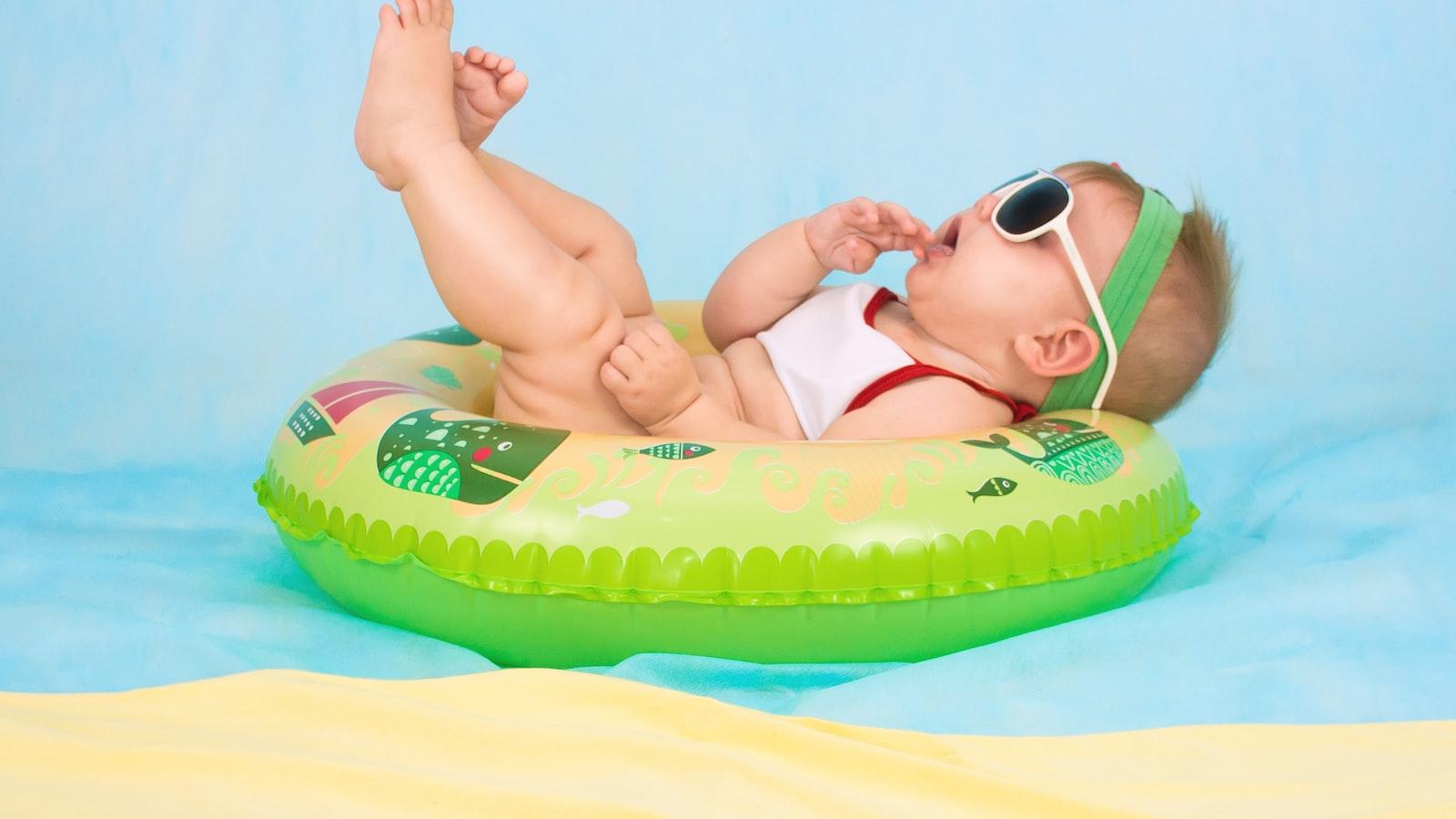Do you have a baby who loves to get close and personal? Does your little one try to take a bite out of your face? If so, you’re not alone. Many parents report their babies trying to eat their face. Although it may be a bit disconcerting, there are some very good reasons why your baby might be doing this. In this article, we’ll explore why babies try to eat their parents’ faces and what can be done about it.Babies are naturally curious and explore their environment with their mouth. When they see something new or interesting, such as a face, they may try to put it in their mouth to explore it further. This is an instinctive behavior that is seen in babies all around the world.
The Need for Comfort and Love
Babies put their mouths on your face to show their need for comfort and love. This is the baby’s way of expressing how much they care for you. Babies enjoy the feeling of being close to you and will often try to get as close as possible. This type of behavior is a natural way for babies to show their affection for you, which can be both comforting and endearing.
Exploring New Senses
Babies are curious by nature and they love to explore new things. Putting their mouths on your face gives them a new experience that they can explore with their senses. They can feel the texture of your skin, smell your scent, and taste the warmth of your skin. Babies find this kind of exploration exciting and satisfying, which can explain why they may do it often.
Calming Effect
Putting their mouths on your face can also have a calming effect on babies. The warmth of your skin combined with the feeling of closeness is very soothing for babies which can help reduce stress levels or provide some comfort when they are feeling anxious or overwhelmed. This type of behavior is also a way for babies to express how much they need you in order to feel secure and safe in the world around them.
Understanding the Nature of a Baby’s Mouth Exploration
It is important to understand the nature of a baby’s mouth exploration when considering the development of their oral skills. Babies are naturally curious and they often explore their environment by putting things in their mouths. As infants grow, they become more adept at using their mouths to explore and learn about the world around them. This includes learning about textures, shapes, tastes, and even smells.
An important part of a baby’s development is learning how to use their mouths for self-feeding. This includes learning how to hold objects with their hands, as well as experimenting with different foods and flavors. Babies also practice chewing and swallowing foods as they become more comfortable with self-feeding.
During the first year of life, babies also learn to express themselves through facial expressions such as grimacing and smiling. This helps them communicate their needs to parents and caregivers. Babies may also use their mouths to make noises such as babbling or cooing which can be used for communication purposes.
As babies grow older, they become more interested in exploring objects with their mouths. They may try to put small objects in their mouths or bite down on hard surfaces in order to explore different textures and tastes. It is important for parents and caregivers to monitor this behavior in order to prevent potential choking hazards or other dangers associated with a baby’s mouth exploration.
It is also important for parents and caregivers to provide appropriate toys that are safe for babies to explore with their mouths. Teething toys are great for helping babies learn how to chew properly while providing an appropriate outlet for oral exploration. Additionally, providing babies with safe items such as washcloths or soft sponges can help them explore textures without the risk of ingesting small objects or dangerous materials.
In conclusion, it is important for parents and caregivers to understand the nature of a baby’s mouth exploration in order to ensure their safety while encouraging healthy oral development. Providing appropriate items that allow babies to safely explore will help them gain confidence while learning about textures, shapes, tastes, smells, and even sounds through mouth exploration activities.
How to Respond When Your Baby Tries to Eat Your Face
It can be a strange and startling experience when your baby tries to chew on your face! While it can be disconcerting, the good news is that this behaviour is completely normal. Babies explore the world with their mouths, and they find it fascinating when they come across something as unique as a human face.
The best way to respond when your baby tries to eat your face is with a gentle but firm no. It’s important that you don’t give in and let them nibble on you, as this could encourage them to keep doing it in the future. Instead, gently remove their hands from your face and distract them with another activity or toy. Doing this consistently will help your baby learn the limits of acceptable behaviour.
It’s also important to remember that babies are very curious and will often try different things as they grow and learn. If you find that your baby is still trying to chomp on your nose or cheeks, try talking or singing with them instead. This can help keep their attention away from trying to nibble on you, while also giving them a chance to practice their communication skills.
Finally, make sure that you’re providing plenty of opportunities for your baby to explore their world in safe ways. Give them teething toys or other objects designed for them to chew on safely so they have another way of exploring beyond trying to eat your face! With time, patience, and consistency, you’ll soon be able to redirect their attention away from any attempts at face-eating.
Redirecting Baby’s Mouth Away from Your Face
It is not unusual for a baby to try to put their lips to your face when they are in need of comforting and security. This can come as a surprise for new parents, but there are ways to redirect a baby away from your face. Here are some tips for redirecting baby’s mouth away from your face:
Acknowledge the emotion: Before attempting to move the baby away from your face, it is important to acknowledge the emotion that they are feeling. This could be fear, insecurity or loneliness. Acknowledge this feeling by speaking quietly and calmly while stroking their back or head.
Redirect with toys: Redirection is one of the most effective ways of getting a baby’s attention away from your face. Offer them a toy or item that will keep them occupied and distracted while you hold them at arm’s length.
Distract with singing: Singing is another great way to distract a baby from wanting to put their lips on your face. Pick out a simple song that you know they enjoy, such as “Twinkle Twinkle Little Star” or “The Wheels on the Bus” and sing it in a sweet voice until they have calmed down enough to let go of you and look at the toy or item instead.
Cuddle and talk: Once the baby has settled down, it is important to cuddle and talk to them in order to show them that you still care for them even if they are not directly touching you. Talk about what is going on around them and explain what each object is so that they can learn about their environment while still feeling safe in your arms.
These tips will help redirect a baby away from wanting to put their lips on your face and comforted in other ways such as holding toys or singing songs instead.

Can Babies Feel Comfort From Sucking or Licking?
It is natural for babies to use sucking and licking as a way of calming themselves. This is because these behaviors are associated with comfort and security. In the early months of life, newborns often find comfort in suckling on their mother’s breast, which can provide nourishment and a feeling of security. In addition, when babies feel stressed or anxious, they may turn to sucking or licking as a way to self-soothe.
Sucking and licking can be comforting to infants as it provides them with a sense of safety. The physical act of sucking and licking releases hormones in the body that can help reduce stress levels. This calming effect can be particularly beneficial for babies who may be dealing with separation anxiety or overwhelming emotions.
In addition, sucking or licking can also provide infants with a sense of familiarity and familiarity is comforting. Babies have an innate need for comfort and familiarity which is why they may find solace in sucking or licking objects that are associated with positive experiences such as their mother’s breast or a pacifier.
Although sucking and licking can be comforting to babies, it is important to keep in mind that these behaviors are not always appropriate. If an infant is allowed to continue suckling on their mother’s breast beyond the recommended age, it could lead to dental issues such as tooth decay or even gum disease due to prolonged exposure to sugary liquids. Similarly, if an infant is allowed to repeatedly lick objects such as toys, this could lead to ingestion of hazardous substances that may be found on the surface of the object.
Overall, it is clear that babies can feel comfort from sucking or licking as these behaviors are associated with security and familiarity; however, it is important for parents to monitor these behaviors closely in order to ensure the safety of their child.
Comforting a Grieving Baby
When a baby is grieving, it can be difficult to know how to comfort them. One way to help your baby cope with grief is to let them put their mouth on you. This allows them to feel connected and supported. It can also provide some comfort and reassurance during difficult times.
It is important for parents to be patient and understanding when their baby wants to put their mouth on them. You may want to start by cradling your baby in your arms and holding them close. Talk softly and let them know that you are there for them and will support them through this tough time.
You may also want to offer other forms of comfort such as rocking, singing, or reading together. Offering a favorite toy or blanket can also help soothe the baby’s grief. If the baby still wants to put their mouth on you after other forms of comfort have been offered, then it is okay to allow it.
The most important thing is for parents to remain patient and supportive during this difficult time for their baby. Letting the baby put their mouth on you can provide some reassurance and comfort, which can help your baby cope with their grief in a healthy way.
Knowing When to Seek Professional Help with a Baby Who Tries Eating Your Face
It can be quite alarming when your baby tries to eat your face. It can be a sign of teething, hunger or simply curiosity. However, if it persists and you are concerned about your baby’s safety and wellbeing, it is best to seek professional help.
If your baby is trying to bite or suck on your face, it’s important to remember that this behavior is normal for young babies. It helps them explore their environment and learn more about the world around them. However, if the behavior becomes aggressive or uncomfortable for you or your baby, it may be time to look into professional help.
When seeking professional help for a baby who tries eating your face, it’s important to first determine the cause of the behavior. If teething is the cause, then there are certain remedies that can be used to help soothe your baby’s gums and reduce their pain. If hunger is the cause, then it might be helpful to adjust their feeding schedule in order to ensure they are getting enough nourishment throughout the day.
If you are still unable to pinpoint what is causing your baby’s behavior, then it may be time to consult with a pediatrician or other healthcare provider. They will be able to assess your situation and provide advice on how best to handle this type of behavior. Additionally, they might suggest some additional strategies that could help reduce the frequency of these episodes.
Remember that every child is different and what works for one may not work for another. If you are concerned about your baby’s safety or wellbeing at any point during this process, don’t hesitate to reach out for professional help from a qualified healthcare provider who can provide guidance tailored specifically for you and your family’s needs.

Conclusion
It’s normal for babies to explore the world with their mouths. While it may be uncomfortable at times, it is part of their development and a sign that they are learning. Understanding why babies try to eat your face can help you respond appropriately and set limits when necessary. It’s important to remember that this behavior is only temporary and soon enough, your little one will be able to understand the difference between what is food and what is not.
Overall, there are a few different reasons why babies try to eat your face: teething, exploring new sensations, curiosity, seeking attention or comfort, and imitation. Taking the time to figure out which reason applies in your situation will help you respond appropriately and provide a safe environment for your little one.




